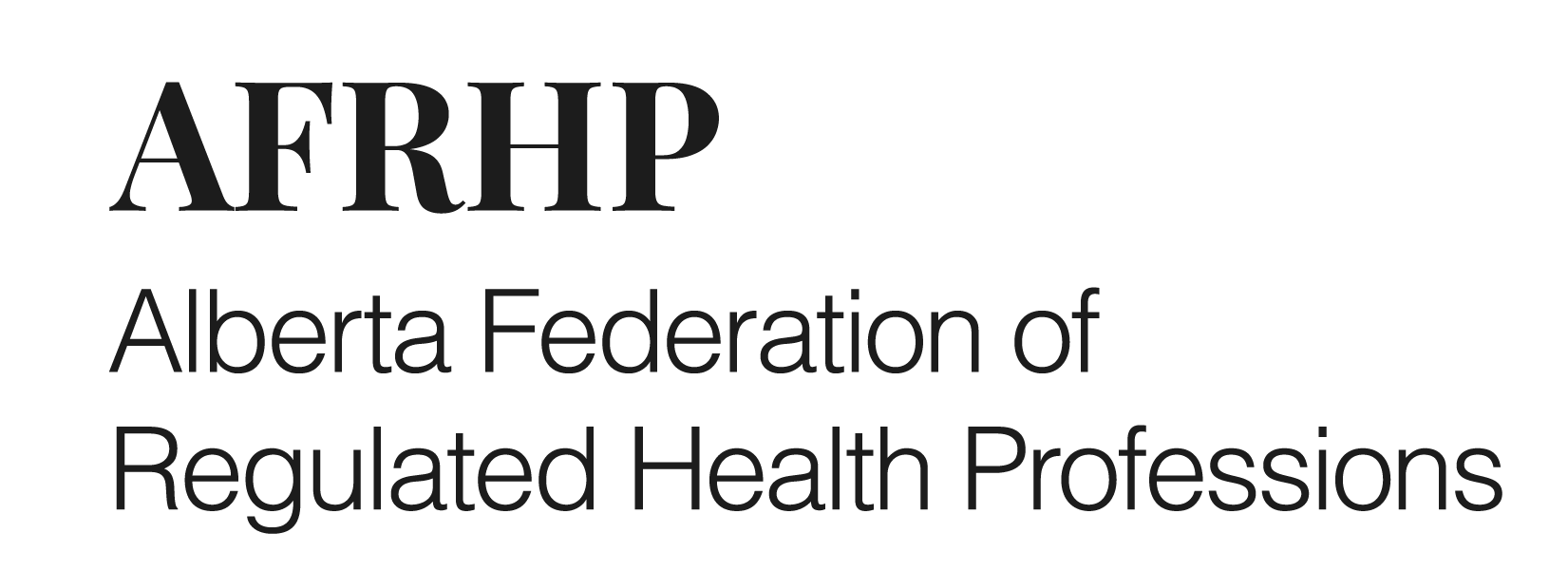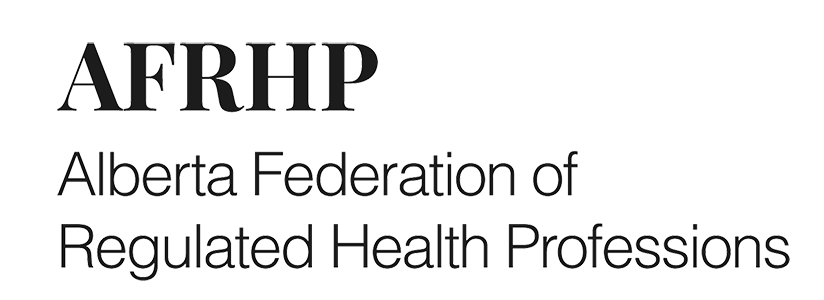Our members
AFRHP’s members are Alberta’s regulatory health Colleges.
These regulatory bodies are here to protect and serve Albertans by helping ensure the delivery of safe, competent, quality healthcare services.
117,000
30
Members Colleges
The Federation’s member health regulatory colleges are listed below, along with a brief overview and a website link. Each college provides a list of their regulated members To find a health professional click on the link below to access their college’s website.
Please visit individual College websites for more information on that College and the profession(s) they regulate.
College of Acupuncturists of Alberta
regulates the acupuncture profession in Alberta and ensures members have the proper education and training to provide competent, ethical services. Serving Albertans and supporting the acupuncture profession by setting high standards of practice, education, competence and ethical conduct.
College of Chiropractors of Alberta
is the regulatory body for the Alberta chiropractic profession. We exist to protect the public through registration, competency, and professional conduct oversight of chiropractors practicing in Alberta.
College of Alberta Dental Assistants
regulates and licenses Alberta dental assistants to help ensure they deliver quality, competent oral healthcare and patient support services.
College of Dental Surgeons of Alberta
provides leadership to the dental profession on professional regulations and member services, and provides the public with information and services, to ensure that Albertans receive safe, appropriate, ethical and quality dental care as an integral part of general health.
Alberta College of Dental Hygienists
regulates the practice of dental hygiene in Alberta. The College sets entry-to-practice and continuing competence requirements, sets standards of practice and codes of ethics, and manages a complaint, investigation and discipline process so Albertans will receive safe, high quality dental hygiene care.
College of Dental Technologists of Alberta
protects and serves the public interest by ensuring that all registered Dental Technologists and Dental Technicians meet specified standards for member registration, education and training; follow written guidelines for member conduct and practice; and adhere to stringent ongoing standards for continuing education.
College of Alberta Denturists
regulates and governs Alberta denturists and in so doing helps ensure Albertans receive safe, ethical and quality denturist services.
College of Dietitians of Alberta
regulates registered dietitians and nutritionists and is dedicated to ensuring Albertans receive ethical competent care from highly qualified nutrition professionals.
College of Hearing Aid Practitioners of Alberta
regulates and governs Hearing Aid Practitioners to ensure Albertans receive competent, ethical care from highly qualified hearing care professionals.
Alberta College of Combined Laboratory and X-Ray Technologists
ensures that registered laboratory and x-ray technologists provide safe, ethical and competent services in the performance of laboratory, x-ray and electrocardiography technologies.
Alberta College of Medical Diagnostic and Therapeutic Technologists
regulates, governs and guides medical radiation and electroneuro-physiology technologists. Both the College and its members are committed to the delivery of safe, competent and effective diagnostic and therapeutic services and excellence in patient care.
College of Medical Laboratory Technologists of Alberta
is the regulatory body for the medical laboratory technology profession in Alberta. We protect and serve the public, patients and our members by regulating and guiding the profession, helping to ensure that Alberta medical laboratory technologists provide safe and professional services.
College of Midwives of Alberta
0versee the registration and practice of registered midwives as primary care providers. Midwives are trained to provide care for childbearing clients throughout pregnancy, birth, postpartum, and for sexual and reproductive care, and who provide this care to diverse populations in a variety of hospital and community settings. Registered midwives must follow the Standards of Practice, Competence, Code of Ethics and Scope of Practice developed to ensure safety and prevention of harm for clients and their babies.
College of Naturopathic Doctors of Alberta
registers naturopathic doctors in Alberta and is committed to the delivery of competent, quality and accessible naturopathic care.
College of Podiatric Physicians of Alberta
regulates the profession that assesses and treats foot ailments – from minor conditions such as ingrown toenails, corns and calluses, to more complex problems such as sport injuries, foot deformities, reconstructive surgery, and side effects from other medical conditions such as diabetes.
College of Licensed Practical Nurses of Alberta
is the regulator for Alberta’s Licensed Practical Nurses. We regulate and lead the profession in a manner that protects and serves the public through excellence in practical nursing.
College of Registered Psychiatric Nurses of Alberta
regulates Alberta’s psychiatric nurses to help ensure Albertans receive safe, competent and ethical psychiatric nursing care.
College of Registered Nurses of Alberta
serves Albertans by regulating the province’s more than 30,000 registered nurses to ensure the public receives safe, competent and ethical nursing care.
Alberta College of Occupational Therapists
serves and protects Albertans by regulating the practice of occupational therapists through registration, monitoring of continued competence and the investigation of unprofessional conduct complaints.
College of Opticians of Alberta
regulates Alberta opticians. We are dedicated to ensuring Albertans receive safe, ethical and competent opticianry services and promote excellence in the profession and in patient care.
Alberta College of Optometrists
regulates and licenses Alberta optometrists to ensure that optometrists practice in the best interests of Albertans.
Alberta College of Paramedics
governs and regulates the practice of paramedicine in the public interest. Our primary responsibility is to ensure that registered emergency medical responders, emergency medical technicians and emergency medical technologist paramedics provide competent, safe and ethical care to Albertans.
Alberta College of Pharmacy
regulates Alberta pharmacists and pharmacy technicians and licenses pharmacies in Alberta. We are responsible for safe, effective, responsible pharmacy practice.
College of Physiotherapists of Alberta
helps ensure Albertans receive competent, ethical and quality physical therapy services by regulating and licensing Alberta physical therapists, and promoting excellence in physical therapy and patient care.
College of Physicians and Surgeons of Alberta
serves Albertans by ensuring physicians have the education and post-graduate training necessary to provide safe, quality patient care. The College also investigates and resolves physician-related complaints, and provides leadership on health policy issues such as physician resources, quality improvement and patient safety.
College of Alberta Psychologists
serves the public interest and guides the psychology profession. We regulate and guide the practice of registered psychologists and registered provisional psychologists to help ensure Albertans receive competent, ethical and professional psychological services.
Alberta College of Social Workers
protects Albertans by regulating and licensing Alberta social workers and promotes excellence in social work practice.
Alberta College of Speech-Language Pathologists and Audiologists
regulates the practice of speech-language pathologists and audiologists, ensuring safe, competent and ethical professional services for Albertans.
Health Profession Colleges
What are Health Profession Colleges?
Alberta’s health profession colleges exist to protect the public. Each college regulates their respective health professions and set standards to ensure Albertan’s receive safe, competent, and ethical health services.
What do they do?
Each health profession college establishes policies and procedures and oversees the registration and regulation of health practitioners. This ensures all health care professionals are properly educated and trained to provide services in Alberta.
Health Professions Act and College Governance
Alberta’s regulated health professionals are regulated by one piece of legislation — the Health Professions Act (HPA). This legislation gives College’s their regulatory authority. It’s the legal framework or ‘rules’ by which the colleges govern and regulate their respective health professions. And is the rules by which Alberta’s health professionals can legally provide health care services in Alberta.
HPA was implemented by the government to consolidate Alberta’s many health professions under one common piece of legislation rather than multiple health profession-specific Acts. HPA legislation also requires public input and representation on our College Councils and in our complaint investigation and member discipline process.
Regulation—how the Colleges are run
Colleges are governed by a board of directors called a council. Each council consists of members of the profession and government-appointed public members. Fifty percent of the voting members of a council, a complaint review committee, and a hearing tribunal must be public members. Public members provide valuable public input, oversight, and representation into College policy and decision-making processes.
Public members are appointed by the government.
Council’s role is to regulate the profession and oversee the College’s management, actions, and policy development within the framework of HPA. So, while government establishes the healthcare ‘rules,’ the various health professions (via their Colleges and councils) implement and enforce those rules for their respective profession.
Regulation is a privilege, not a right, granted by the government on behalf of the public. Inclusion of professionals in regulation is commonly used in technically specialized and complex areas, like healthcare, because the professions, not the government, have the specific knowledge and expertise needed to set education, competence, license, and practice requirements/standards.



